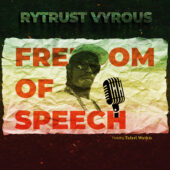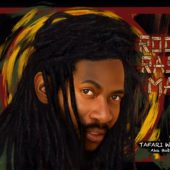Jamaica Poetry Fest A Night Of Fun, Depth And Blackness

There were many rib-tickling punchlines from the performers and a few outbursts, smiles, and giggles from the audience. It was an evening of fun, but it was not comedy central. It was the 8th Annual Jamaica Poetry Festival at the Ranny Williams Entertainment Complex in St Andrew.
From the energy of Wise Wurdz, Ras Jaja, and Yasus Afari, to the subdued, yet reflective presentations of Dr Velma Pollard and Jamaica Poet Laureate Lorna Goodison, patrons were treated and offered a variety of poems touching on racism, Rasta menu, reparation, imperialism, skin bleaching, love, romance, deportation, corruption, police brutality, political interference, etc. The performers had come prepared to chat.

Antonia Valaire
Antonia Valaire’s youthfulness and smile belie her depth and militancy.
The youngest of the lot was also the most militant. Antonia Valaire’s pleasant countenance belied the strength of her convictions. She smiled, but she was also in a mood “to bomb Parliament”. The youth activist and 2014 Prime Minister Youth Awardee for Excellence in Arts and Culture ended her well-received 10 minutes with an ode to her mother who was in the audience, the mother “who never departs – but was always a part”.

Spolly
Spolly wants Ebony, the bleacher, to bleach her shadow, too.
Valaire was followed by Spolly, an elderly Rastaman with an easy-going style. But he spewed words that were powerful, penetrating, and thought-provoking. When he touched on the vexing issue of skin bleaching, no one was prepared for the imagery of ‘Ebony’, the bleacher. When he uttered the takeaway line for the night, “Ebony, your shadow is mocking you. I guess you might want to bleach it, too”, the audience went into an uproar, and Spolly gave them some more.
Ras Jaja’s family is perhaps tired of Rasta food and is longing for something “finger-licking good”, while Lenny-Little White of CVM-TV and Royal Palm renown brought his “own orchestra” in the form of master drummer Phillip Supersad. He dedicated each of his pieces to some well-known personality including Ka’Bu, Reggie Cater, and Rex Nettleford.

Ka’Bu
Ka’Bu’s poems forced the audience to reflect.
Radio personality Ka’Bu, started out with a poem about every black man “the black man who recreates himself through time and space, over and over, again”. Things got somewhat familial with the narratives of her mother who refuses to accept her Africanness, and her father, “who goes out to be African”.
Ka’Bu ended with Praise Song for Mama Enid from her new collection, Making Kente From Memory. In it she tells the story of a pregnant young woman who hid her partner from the police in a mattress during the 1963 Easter massacre of Rastafarians in coral Gardens, St James. Without apology, she said, more than once, “Busta has no business in har bedroom.”

Jean Binta Breeze
Jean Binta Breeze receiving her Lifetime Achievement Award from Beverley Lashley, national librarian and CEO at the National Library of Jamaica.
The highlight of the evening was the presentation of the Lifetime Achievement Award to renowned Jamaican international poet Jean Binta Breeze. It was done in collaboration with the National Library of Jamaica (NLJ), one of the sponsors of the event. The award and citation read by Ka’Bu Ma’at Kheru, were presented to Breeze by Beverley Lashley, national librarian and chief executive office at the NLJ.
Breeze was gracious in her acceptance, but before the presentation and in a clear, strong, dramatic voice, from her wheelchair, she delivered one of her pieces in her inimitable engaging style about the experience of a mentally challenged woman in Kingston, ending each stanza singing, “Eh, eh, no feel no way, Town is a place a really stay. Dem couda ribbit heart, ribbit mi toe, mi waa go a country go look mango,” and the audience sang along.

Mutabaruka
Mutabaruka says he does not have a colour problem – he sees everything black.
Mutabaruka, the patron for the night, with his tone evoking pathos, irony, and militancy, exposed Columbus for what he really was. He called for the return of the things the colonisers took from him. For those who love to hate him, he said, “Look, I am now your next-door neighbour.” His parody of nursery rhymes was followed by “I don’t have a colour problem, I see everything black.” His provocative performance ended with his having a “black-out” at the end.
Source: jamaica-gleaner.com | by Paul Williams
























